Good news for anyone who loves a nice crunchy salad or crudite: Science is offering a good excuse to skip the stove, oven, and microwave altogether and prep some foods sans cooking.
Turns out, food can be healthier when eaten raw—or at least when it comes to these eight fruits and veggies. Keep reading to see how.
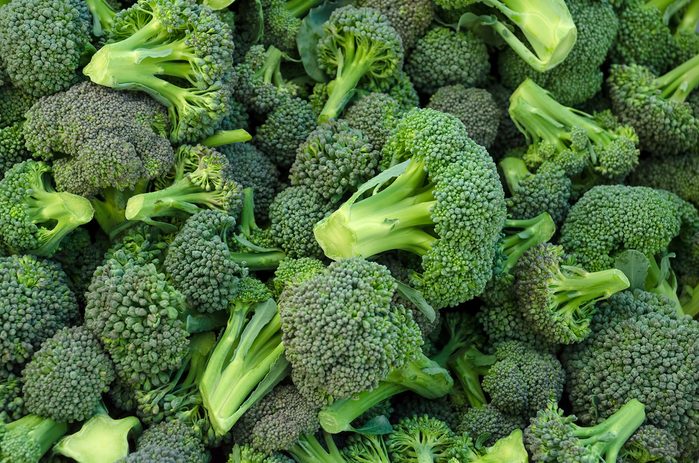
Broccoli
You may have been encouraged to eat your broccoli when you were a kid, but you may not have been told that it’s better to eat it raw than cooked. Broccoli contains high amounts of an antioxidant compound called sulforaphane, which may help prevent cancer, type 2 diabetes, heart disease, inflammation, depression, and more harmful health conditions. And a study published in 2008 in Journal of Agricultural Food and Chemistry found that our bodies absorb sulforaphane more quickly when we eat broccoli raw instead of cooked.
Another study from 2009 found that cooking the veggie in a variety of ways—including microwaving, boiling, and stir-frying it—lowered its vitamin C levels. If you can’t stand the thought of raw broccoli, try steaming it. That cooking method had the least effect on nutrients. (Here are 10 foods with more fiber than broccoli.)
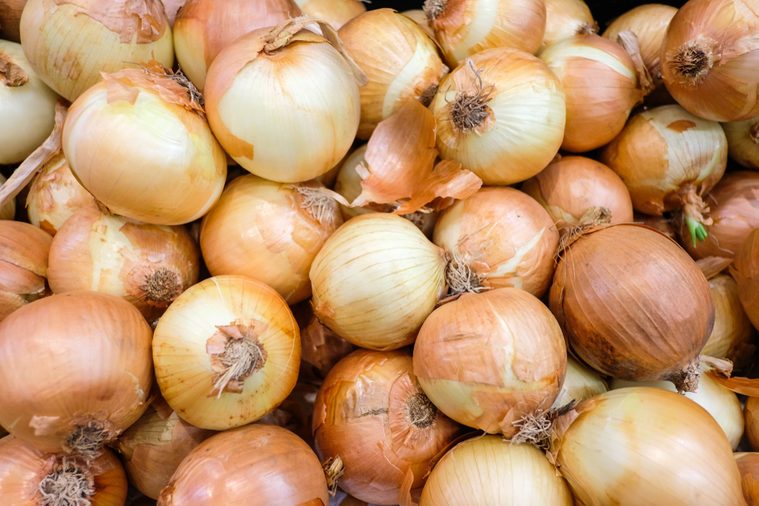
Onions
Don’t cry for onions! They’re loaded with health benefits, including some major cancer-fighting benefits, thanks to high concentrations of the flavonoid quercetin. “When eaten raw, you maximize on [onions’] cancer-fighting properties,” says Ashley Walter, nutritionist, chef, and creator of Living with Ashley. “Cooking reduces the benefits of the phytochemicals in onions that fight cancers.”
What’s more, onions are in the allium family of vegetables, which means they contain antiplatelet agents that can prevent cardiovascular disease. A study published in the Journal of Agricultural and Food Chemistry found that when raw onions were heated in an oven, those heart-healthy properties completely disappeared in 30 minutes or less, depending on whether the onions were whole, quartered, or crushed.
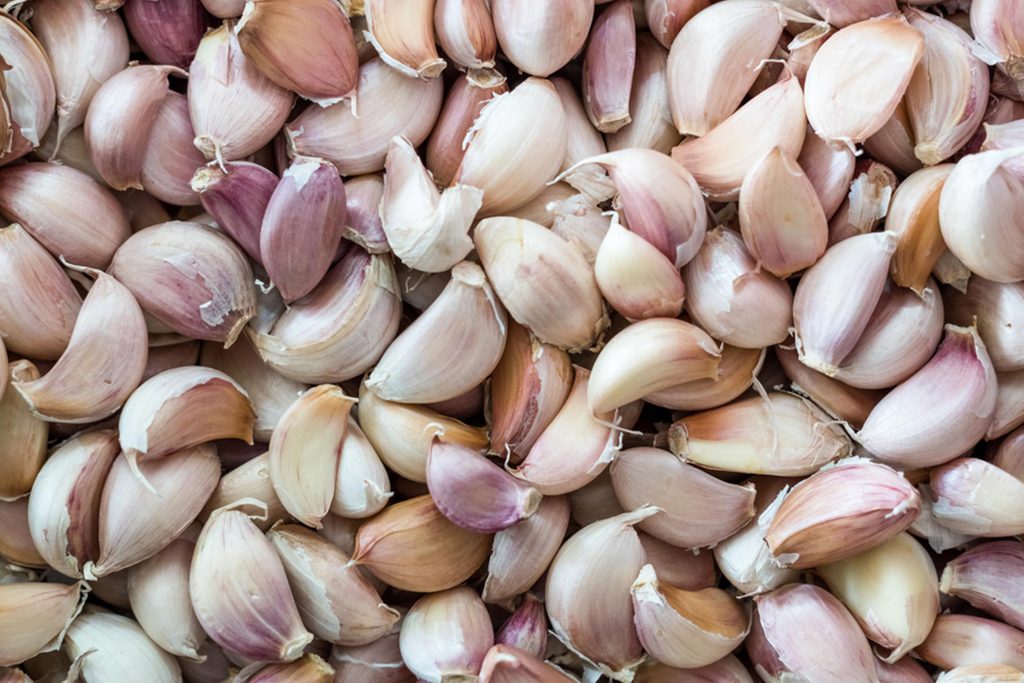
Garlic
Like onions, garlic—among the antisocial foods you should keep eating—is an allium vegetable that also has antiplatelet agents, but that means its properties that fight cardiovascular disease are also affected by heat. A study published in the Journal of Agricultural and Food Chemistry found that heating garlic at 392 degrees for six minutes completely suppressed antiplatelet activity in uncrushed garlic and significantly reduced it in crushed garlic.
Among the other unexpected health benefits to using raw garlic: Research, including a study published in 2019 in Journal of Food Process Engineering, show that heat inactivates the alliinase enzyme. Boiling garlic for 20 minutes completely suppressed antibacterial activity, and only one minute of microwave heat destroyed 100 percent of its cancer-fighting ability. Crushing garlic and allowing it to sit 10 minutes before heating it partially restored its anticarcinogenic power, but the cooked garlic was still 30 percent less potent than raw garlic.
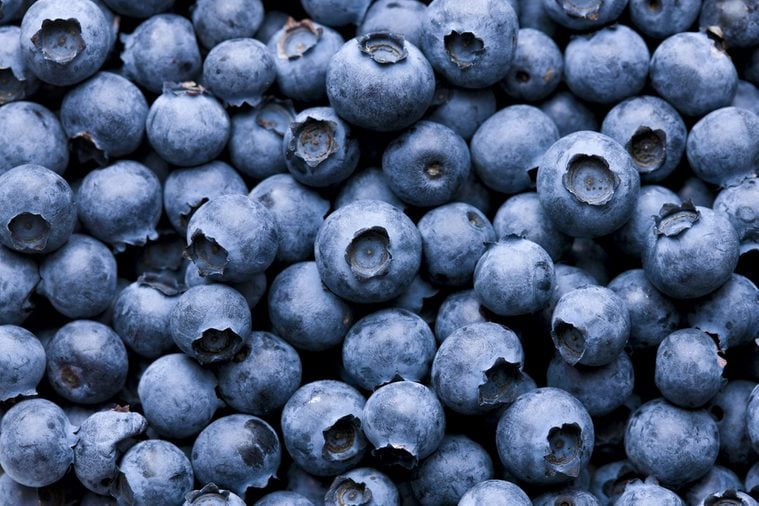
Blueberries
You probably already know that blueberries are healthy for you, but do you know just how healthy? They’re chock full of powerful antioxidants called flavonoids. Eating them raw ensures you get all of those benefits.
A study published in 2014 in the Journal of Agricultural and Food Chemistry found that processing blueberries, through baking, cooking, or proofing (when dough rises before cooking), decreases polyphenol levels.
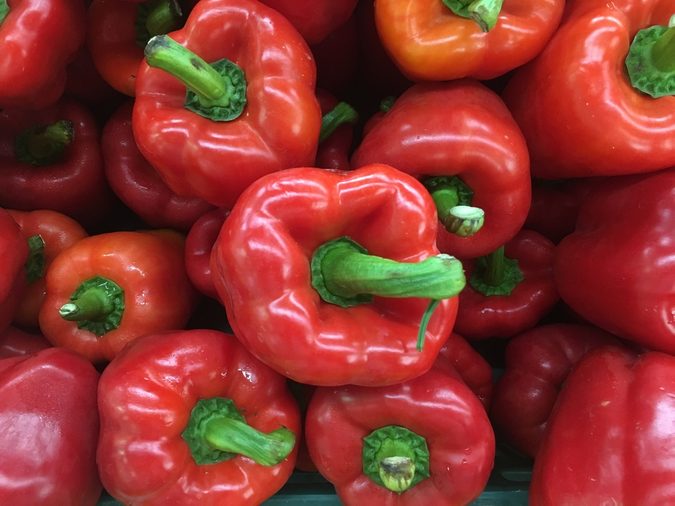
Red bell peppers
Roasted peppers are a quick, easy addition to any meal, but you may just want to eat those veggies raw. Among the foods that boost your immune system, red bell peppers are a great source of vitamin C—they contain nearly triple the vitamin C of an orange—and heat can destroy this essential nutrient. But that’s not all. A review of studies published in 2015, in the journal Antioxidants, shows that red bell peppers also have more antioxidants than any other bell pepper, giving them super powers in terms of protecting against the kind of oxidative damage to cells that leads to cancer, diabetes, Alzheimer’s, and other disease.
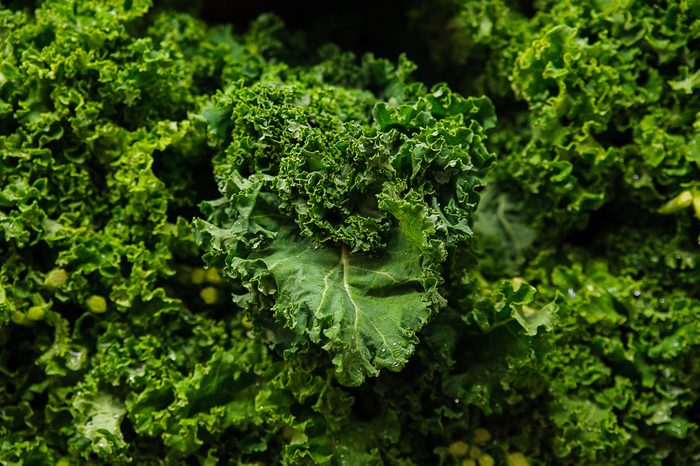
Kale
A cruciferous vegetable, kale contains compounds called glucosinolates, and when they come into contact with the enzyme myrosinase, they turn into a different, disease-fighting compound. But research, including a review of studies published in 2016 in Frontiers in Nutrition, shows that heat inactivates myrosinase. So cooked kale doesn’t have the same disease-fighting properties that a raw kale salad does. (Not a fan of raw kale? Here are 10 healthy kale recipes you’ll actually enjoy.)
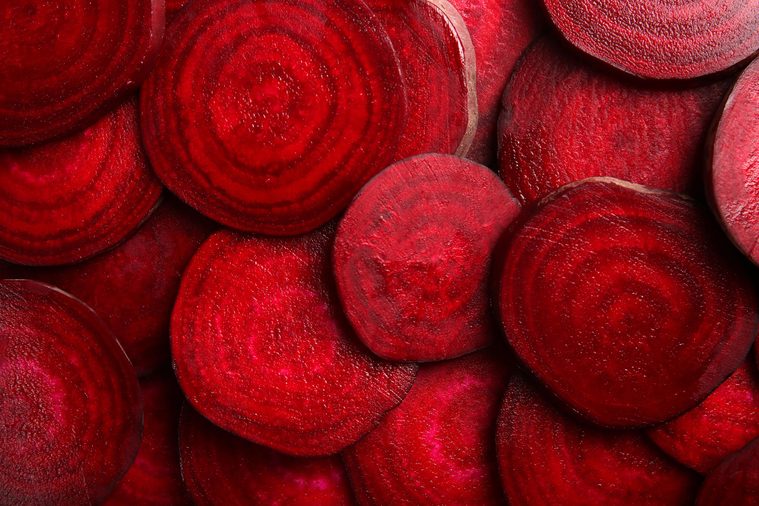
Beets
This may come as a surprise to some, but yes, you can eat beets raw. In fact, they’re actually a bit healthier for you that way. Beets are packed with healthy nutrients, like five essential vitamins, calcium, iron, potassium, and protein. And they contain high levels of fiber and folate (a form of vitamin B9). However, “cooked beets lose 25 percent of their folate and other vitamins and minerals,” says Rebecca Park, RN, a registered nurse in New York City and creator of Remedies for Me. Try shaving the root veggie onto salads for a pop of color, or create your own raw beet salad with other raw vegetables or citrus fruit.
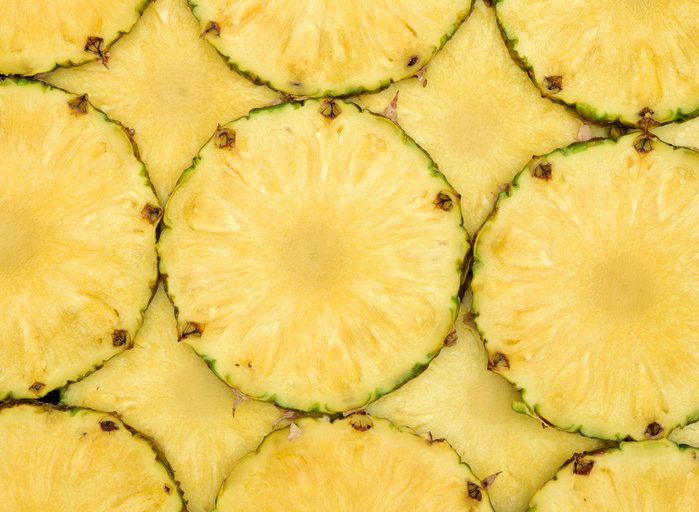
Pineapple
Grilled pineapple may be an exotic addition to any barbecue menu, but cooking this sweet and tangy tropical fruit may deprive you of important health benefits, says acupuncturist and natural healer Elizabeth Trattner. A study published in Inflammatory Bowel Diseases found that fresh pineapple juice was more effective at decreasing inflammation and colonic neoplasia (an abnormal growth of tissue around the colon) in mice with colitis than boiled pineapple juice.
Researchers attribute this to the fresh juice’s high levels of the enzyme bromelain, which helps reduce swelling. Since the study was conducted only on mice, the findings are considered preliminary. However, a review of studies published in 2017 in Journal of the Pakistan Medical Association suggests that bromelain may be as effective an anti-inflammatory as non-steroidal anti-inflammatory drugs (NSAIDs), but with fewer side effects.
